It’s not science fiction anymore! Artificial intelligence is transforming healthcare beyond our imagination. The power of AI is echoing across healthcare subindustries, and it is truly life-changing.
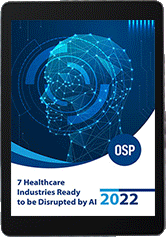

In this eBook, I have discussed each industry in detail. Their current challenges, an overview of AI-based solution workflow process, the modules, compelling use cases, and finally, the benefits will be discussed.
AI is bringing a paradigm shift in the healthcare industry, with its ability to mimic human cognitive functions. It is the catalyst to self-running growth by leveraging advanced technologies that enable machines to sense, understand, act, and learn to perform diverse administrative and clinical healthcare functions to augment human activity.
Which Healthcare Sub-industries are Looking Forward to Transformation?
From early detection to improved medical diagnosis, AI is positively contributing to the welfare of humanity. AI and ML are reshaping healthcare in multiple ways — how consumers access it, how the providers are delivering it, and what health outcomes may achieve. In this article, we identify 7 healthcare sub-industries that will see a significant impact and massive transformation in the coming years.
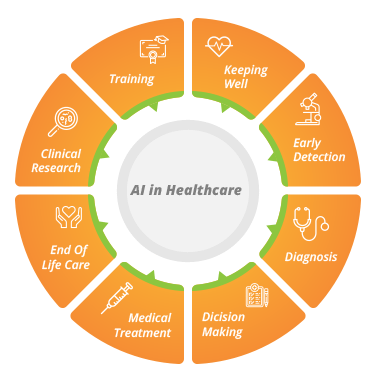
Medical Diagnosis
‘Diagnostic errors contribute to approximately 10% of patient deaths, and account for 6 – 17% of hospital complications.’ – National Academies
Physician performance is not the only factor that causes these errors. There are many others like
Inefficient collaboration and integration of health information systems
Communication gaps among clinicians and patients
A traditional healthcare work system that does not adequately support the diagnostic

Applications of AI in medical diagnosis are currently in the early adoption phase due to limited data available on patient outcomes. However, by around 2022, AI may advance in its potential to impact how healthcare providers and health care systems approach diagnostics. It will play its role in reshaping the ability for individuals to understand changes to their health in real-time
Medical Billing
Coding accuracy is an ongoing challenge for healthcare providers. These errors are increasing claims denial rates and eventually affecting their ROI. On the other hand, billing is a manual and tedious task that requires efficiency. The role of eClinical Works EHR as well as AI in medical billing is that of an expert billing assistant who is accurate, fast, and highly efficient.
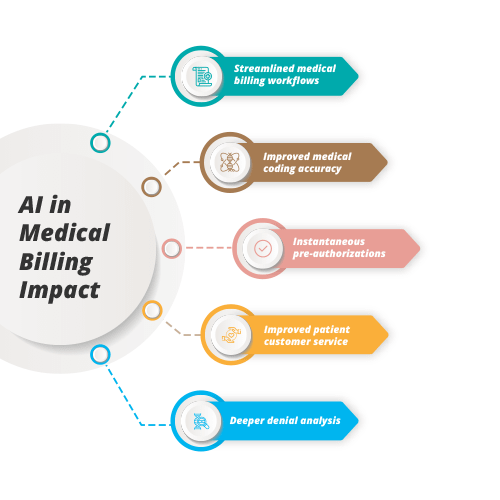
Medical billing and coding is a core element of how healthcare is delivered and received in the US. The risks of inaccurate billing are still a challenge in this field, and the vast amounts of data involved are prime territory for AI applications. The sheer volume of billables requires quick processing, and AI can address these hurdles through intelligent text analysis, denial management analysis, and more.
Pharma
Over the last five years, the use of AI in the pharma industry has redefined how scientists develop new drugs, counter diseases, and more. AI may have a crucial role in the pharma industry in developing new drugs, helping in drug adherence, and in-depth analysis of clinical trials.
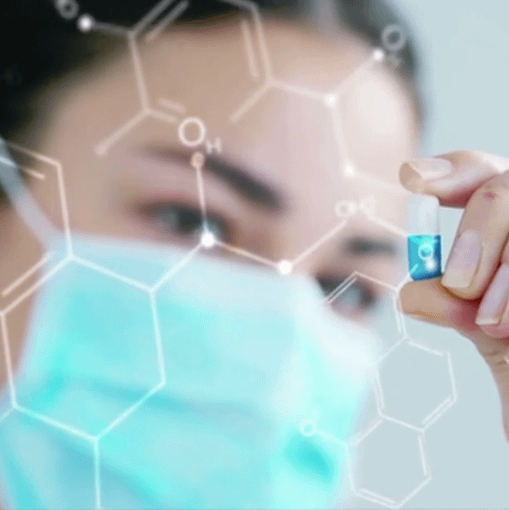
As per a report published by the HIMSS Analytics 2017 Essentials Brief, less than 5% of healthcare organizations are currently using or investing in AI technologies. Current IT infrastructure of Pharma companies is traditional and based on legacy systems, lacking in interoperability and tagged data. AI-based systems in pharma can solve these challenges. It can cut costs down, create new, effective treatments, and above all else, help save lives.
Medical Imaging
Deep learning technology can identify specific features in images, enhance image quality, and spot outliers and abnormalities. Many imaging research laboratories are rapidly moving towards advanced techniques to achieve efficiency and expertise to the optimum level.
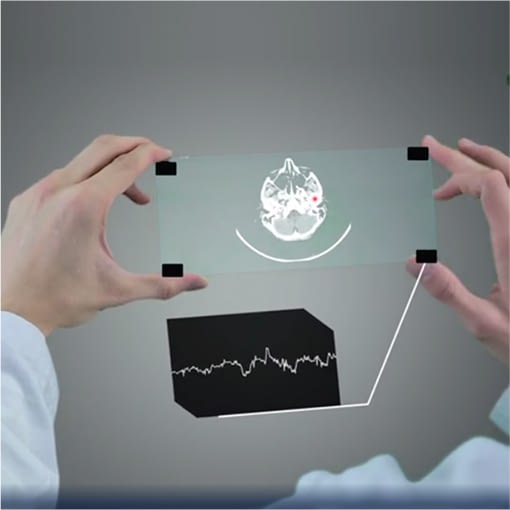
AI in medical imaging can enhance a broad spectrum of an essential process such as medical image reconstruction, noise reduction, quality assurance, segmentation, triage, and more. Many upcoming AI-based applications are claiming to have potential in radio genomics, computer-aided detection, and classification.
In the coming years, AI will remodel current healthcare systems to offer a powerful impact on current clinical imaging practices. To make it happen, we need to focus on building novel pre-trained model architectures tailored for medical imaging data along with means of data exchange with seamless interoperability.
IoT
To offer value-based healthcare to the patients, a combination of AI and IoT can add value beyond imagination. Dubbed as the Internet of Medical Things (IoMT), this advanced technology can enable connecting different medical devices and sensors with the internet to gather vast amounts of critical patient’s data. This collected data can be analyzed and utilized to understand patient conditions, faster and accurate medical diagnosis and to understand resource utilization patterns at a healthcare facility.
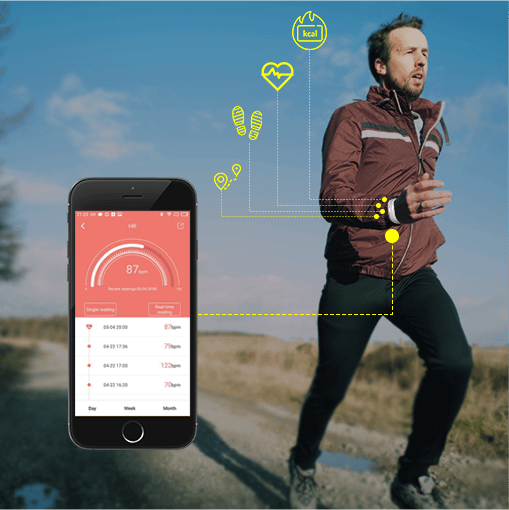
Though it requires a substantial initial investment, many healthcare facilities are taking an interest in the merits of IoMTs. It can bring great relief to patients and providers related to chronic diseases. These patients can be monitored in real-time from the comfort of their home.
Pathology
Traditional pathology practices are nearing an end as digital pathology with AI is quickly replacing them. With the rising workload and need for accuracy, AI will mark its impact in the coming years at a full-scale level. Advanced technologies hold the power of taking current pathology procedure labs beyond the limits of the microscope and human sight.
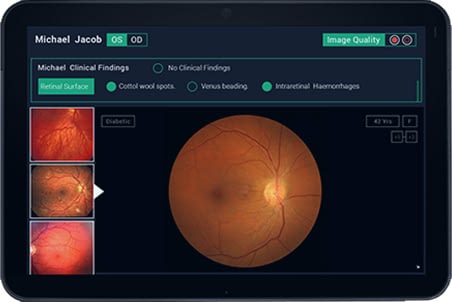
AI in pathology can simplify image analysis, rare object identification, morphology-based segmentation, and digital whole slide imaging. The accelerated adoption of artificial intelligence and digital pathology in recent clinical practice has ushered in new horizons for value-based care delivery.
Radiology
Advancements of AI in radiology domain can be a crucial breakthrough in our efforts of revolutionizing patient care. AI can power an integrated cloud-based RIS/PACS platform to help radiologists review the cases automatically in real-time.
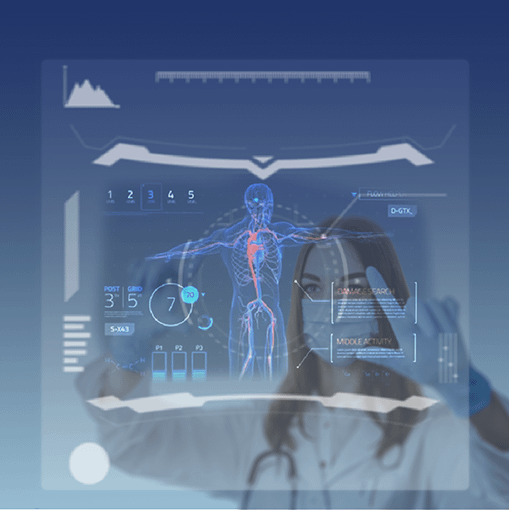
The current predictions for the upcoming future of radiology with AI are pro-AI mostly. If these predictions are realized, then clinicians, patients, and payers will undoubtedly gravitate toward modern-day radiologists who have figured out how to work efficiently alongside AI.
Conclusion
AI is becoming highly ubiquitous, and we have yet to realize its game-changing clinical, administrative, and financial opportunities that await us in healthcare. With current experiences, we can say that AI has multiplied productivity across a range of human endeavors. AI has already progressed rapidly to solve process inefficiencies, manual and expensive procedures, guard against human error, and provided assurance to redefine the whole idea of patient care. Unlocking the power of AI will need closer collaboration between the healthcare IT stakeholders and the end-users in the industry.
0 Comment(s)